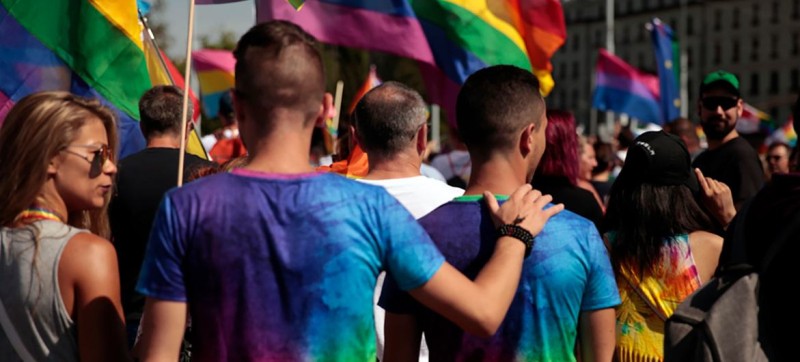© UNAIDS Around the world, 67 countries still criminalise same-sex relations, with 10 imposing the death penalty.
Mentioning this year’s theme in a statement to mark the day, Together Always: United in Diversity, the UN chief called on leaders ‘to speak with one voice” to eliminate stigma and discrimination, that result in sometimes deadly attacks targeting LGBTQI+ communities.
The Secretary-General showed his deep concern over the levels of violence directed towards LGBTQI+ people and how those communities are still vulnerable to multiple forms of attack.
“As we mark the International Day Against Homophobia, Biphobia and Transphobia, we face a stark fact. In every corner of the world, LGBTQI+ people continue to face violence, persecution, hate speech, injustice, and even outright murder,” said the UN chief.
Ending criminalization
He called on Member States to stop criminalization of LGBTQI+ people around the world and punishing them for “simply being who they are.”
He said each assault on a LGBTQI+ person was an assault on human rights:
“I renew my call to all Member States to uphold the Universal Declaration of Human Rights and end the criminalization of consensual same-sex relations and transgender people. Being yourself should never be a crime,” said Mr. Guterres.
Tweet URL
Calling on States
In a statement on Tuesday, a group of independent human rights experts on Tuesday called on Member States to address racism and stigma against LGBTQI+ people in a joint statement. They called on States to adopt measures to end the various forms of violence and discrimination directed against the community.
“We call on States to uphold the inherent dignity of all persons, without any distinction, by adopting measures to eradicate racial discrimination, exclusion, intolerance, hatred, bigotry, violence, and stigmatisation of lesbian, gay, bisexual, transgender and gender diverse (LGBT) persons,” the human rights experts said.
Racial discrimination
The rights experts also recalled that to end structural violence against LGBTQI+ people, States must take an intersectional approach and consider how different social identities contribute to how communities are affected by different forms of discrimination.
“Racialization, ethnicity, age, colour, disability, national and residential and socio-economic status, expose LGBT persons to different forms of discrimination that affect their ability to enjoy their human rights and fundamental freedoms without distinction of any kind.
“To adequately analyse how structural inequalities lead to violence and exposure to risk, it is a must to adopt an intersectional approach. While some people are privileged, most face discrimination and violence, including arbitrary displacement, because of their multiple intersecting identities,” the experts said.
Independent human rights experts and other UN Human Rights Council-appointed rights experts, work on a voluntary and unpaid basis, are not UN staff, and work independently from any government or organisation.




Comments are closed.